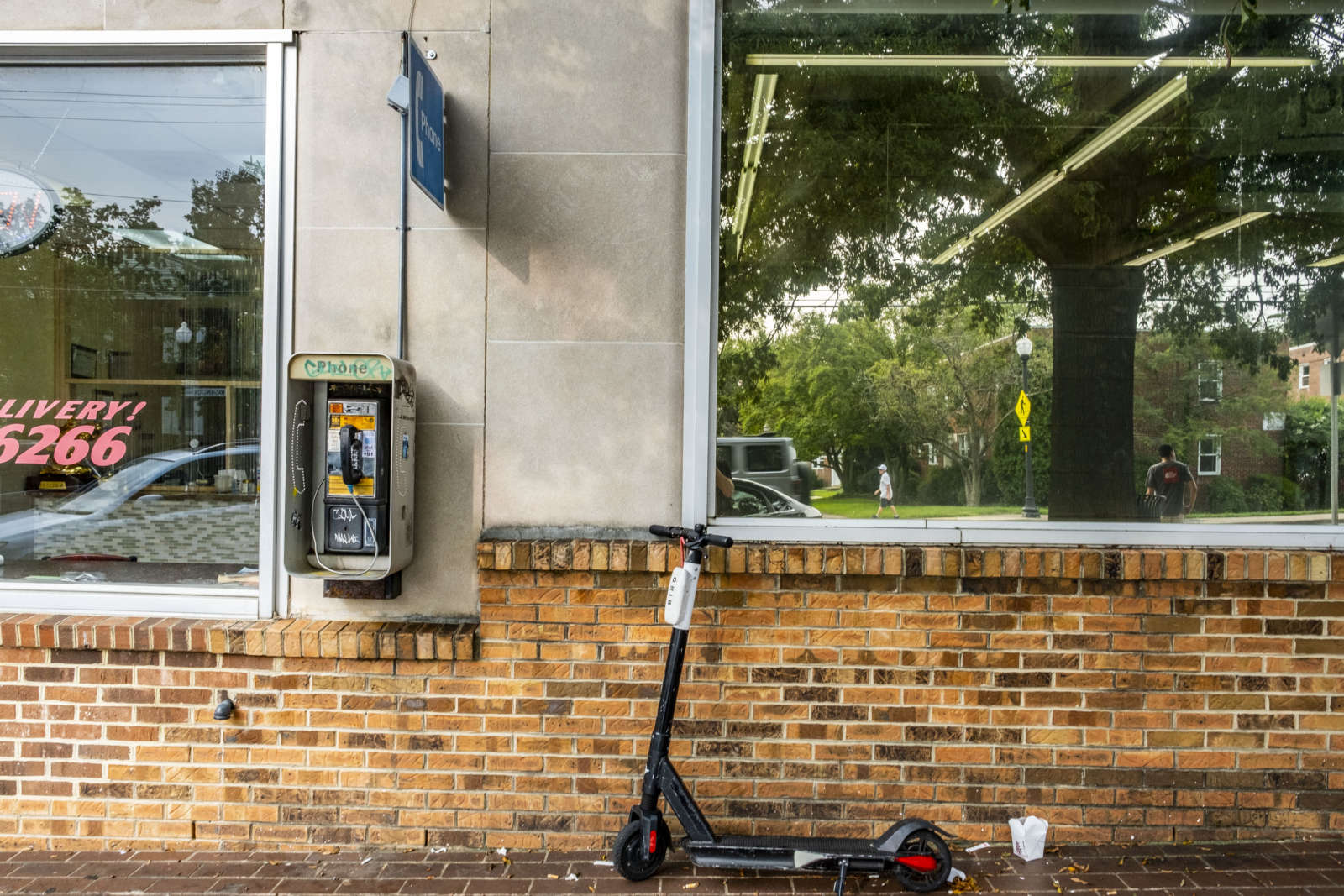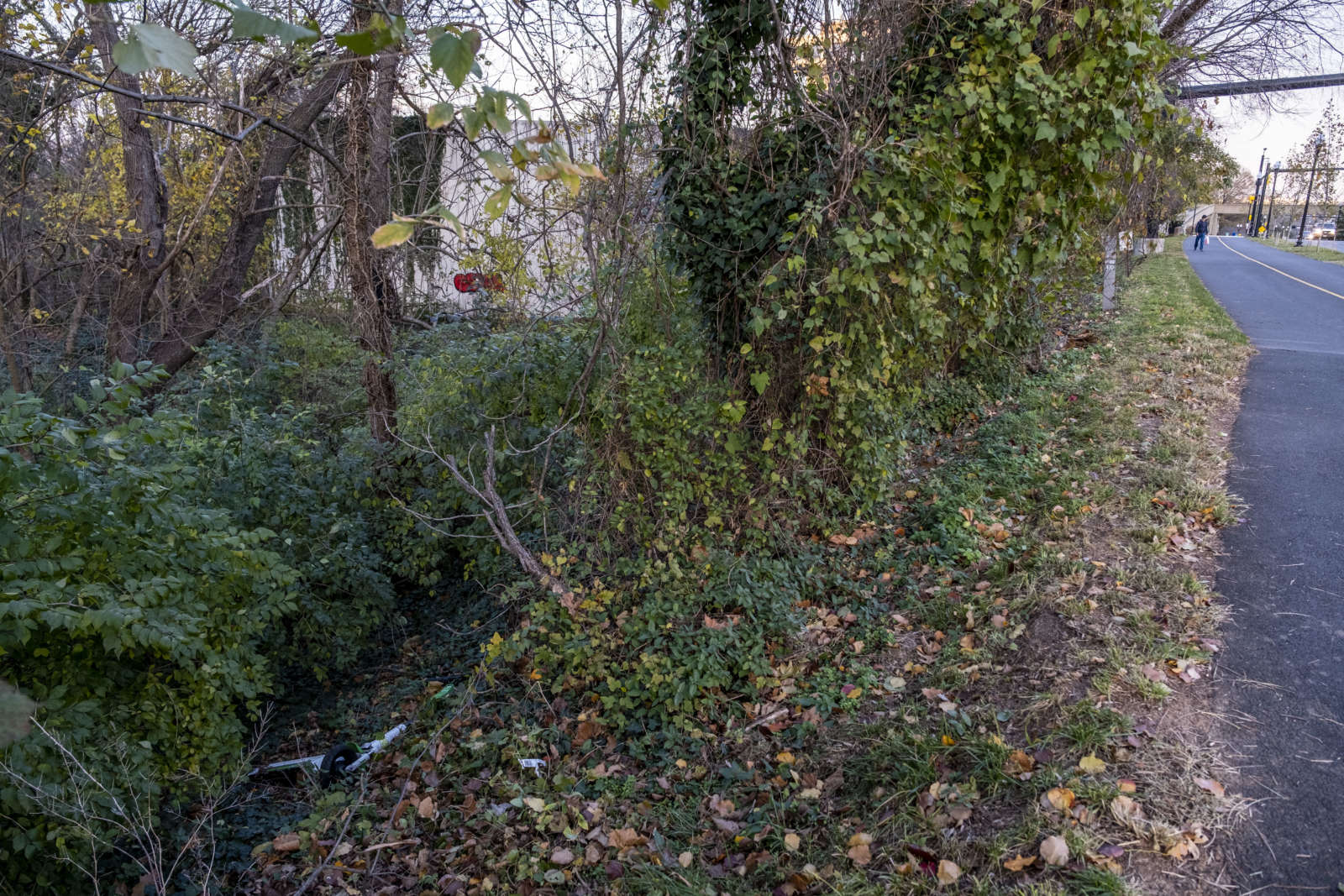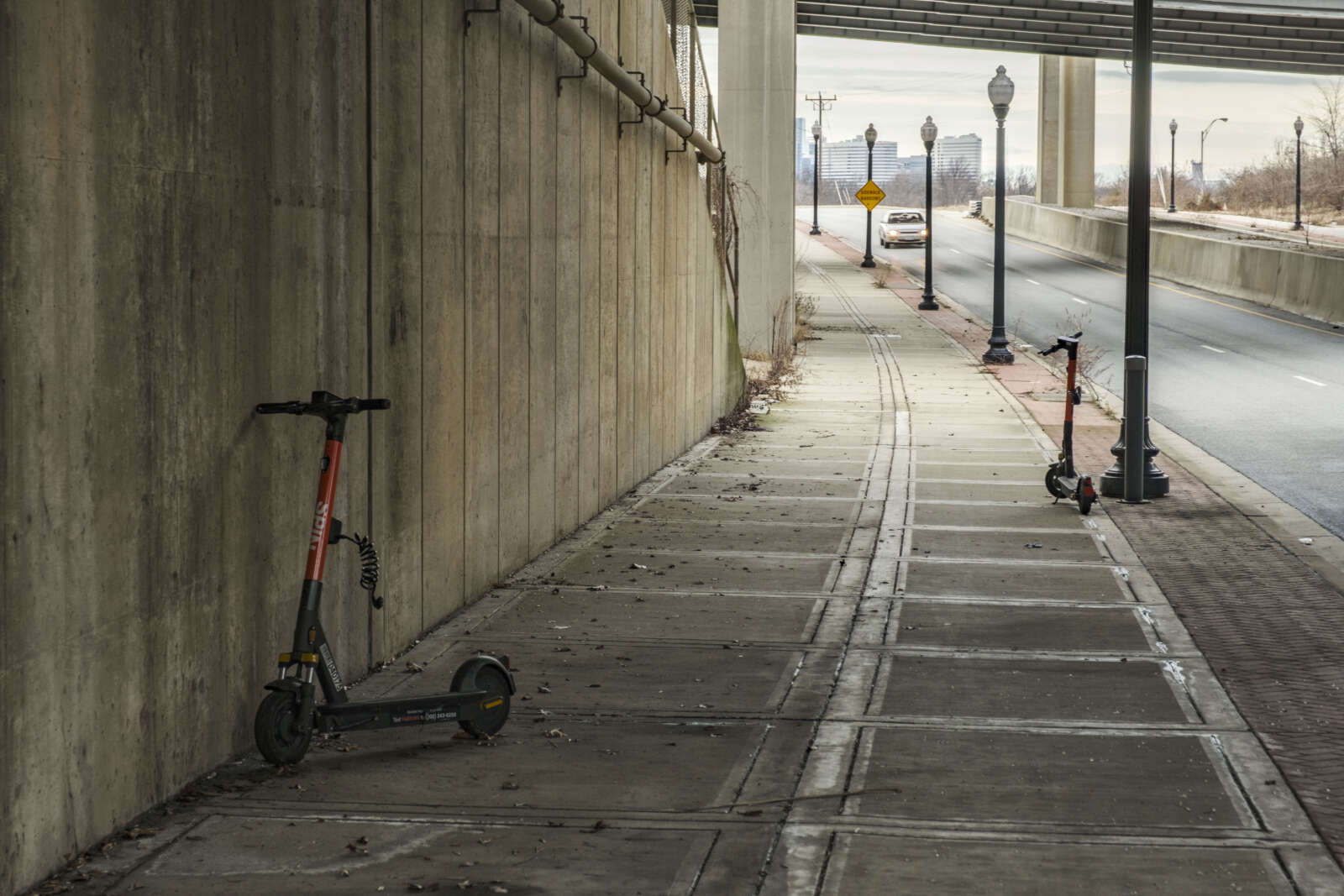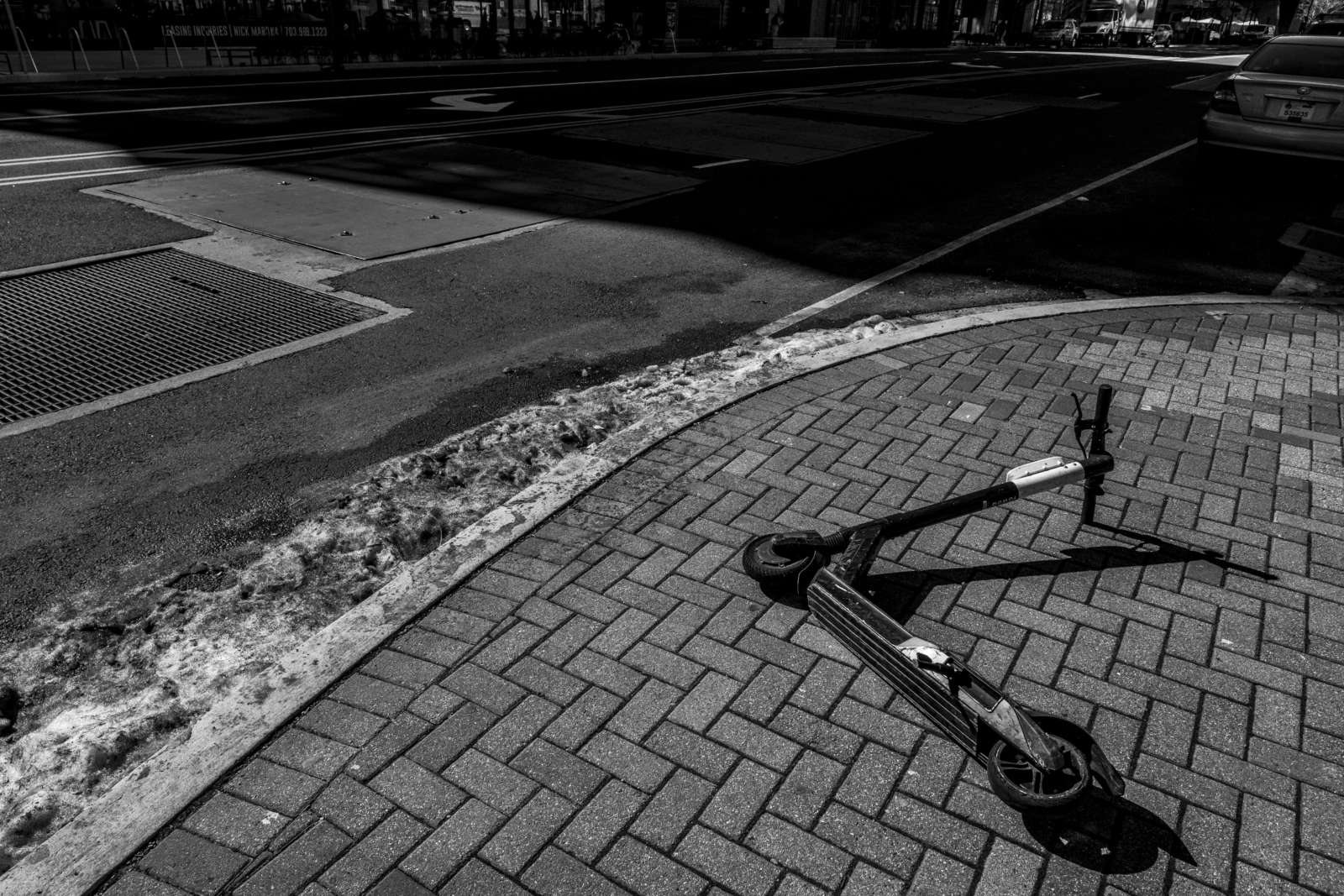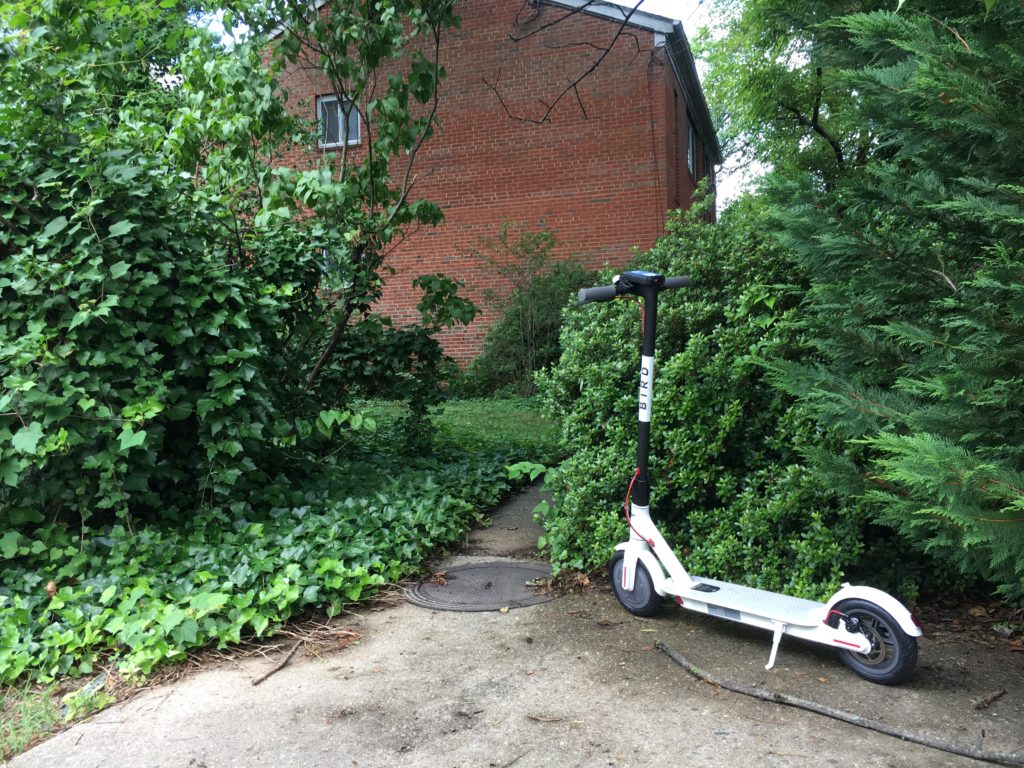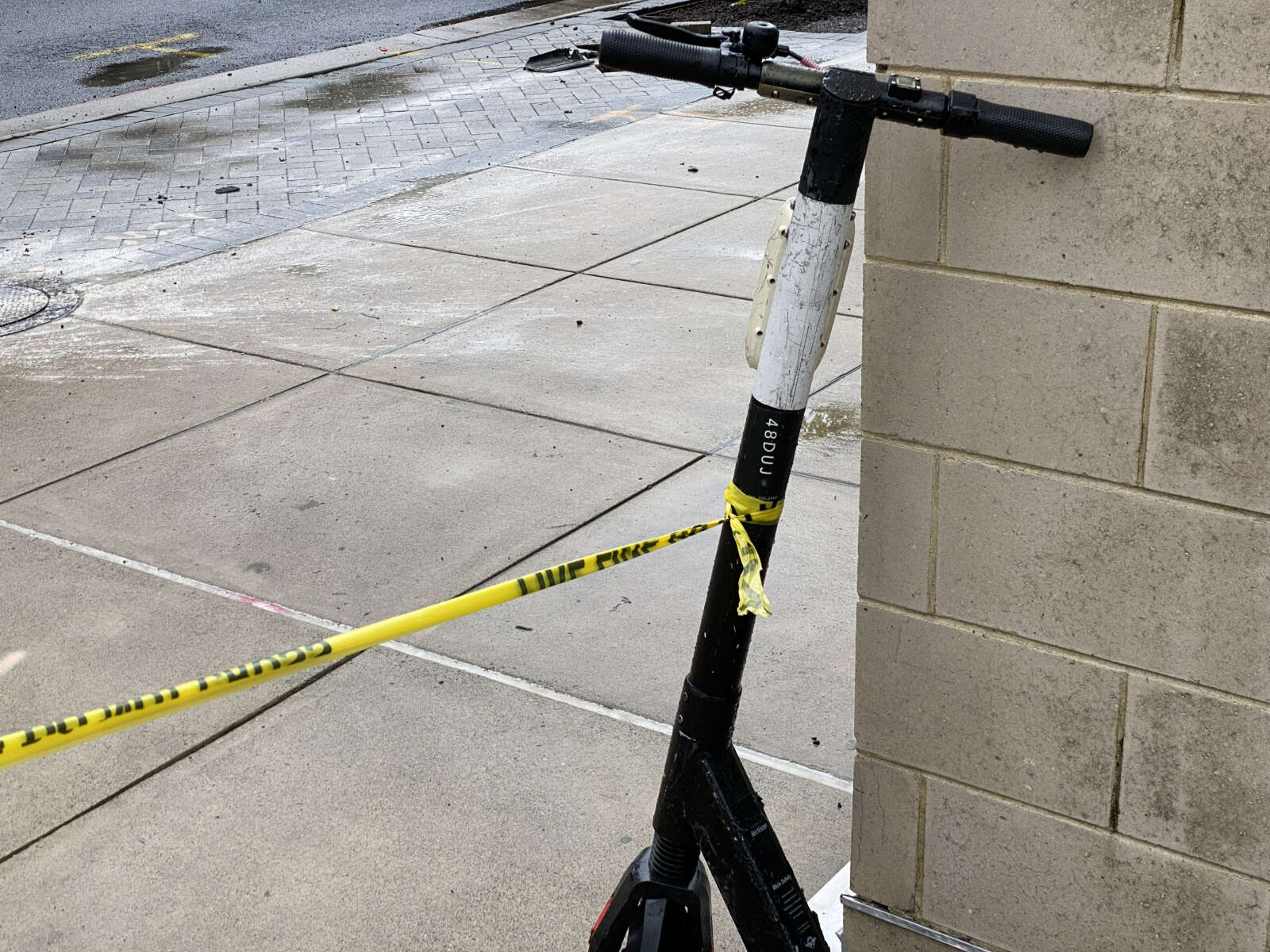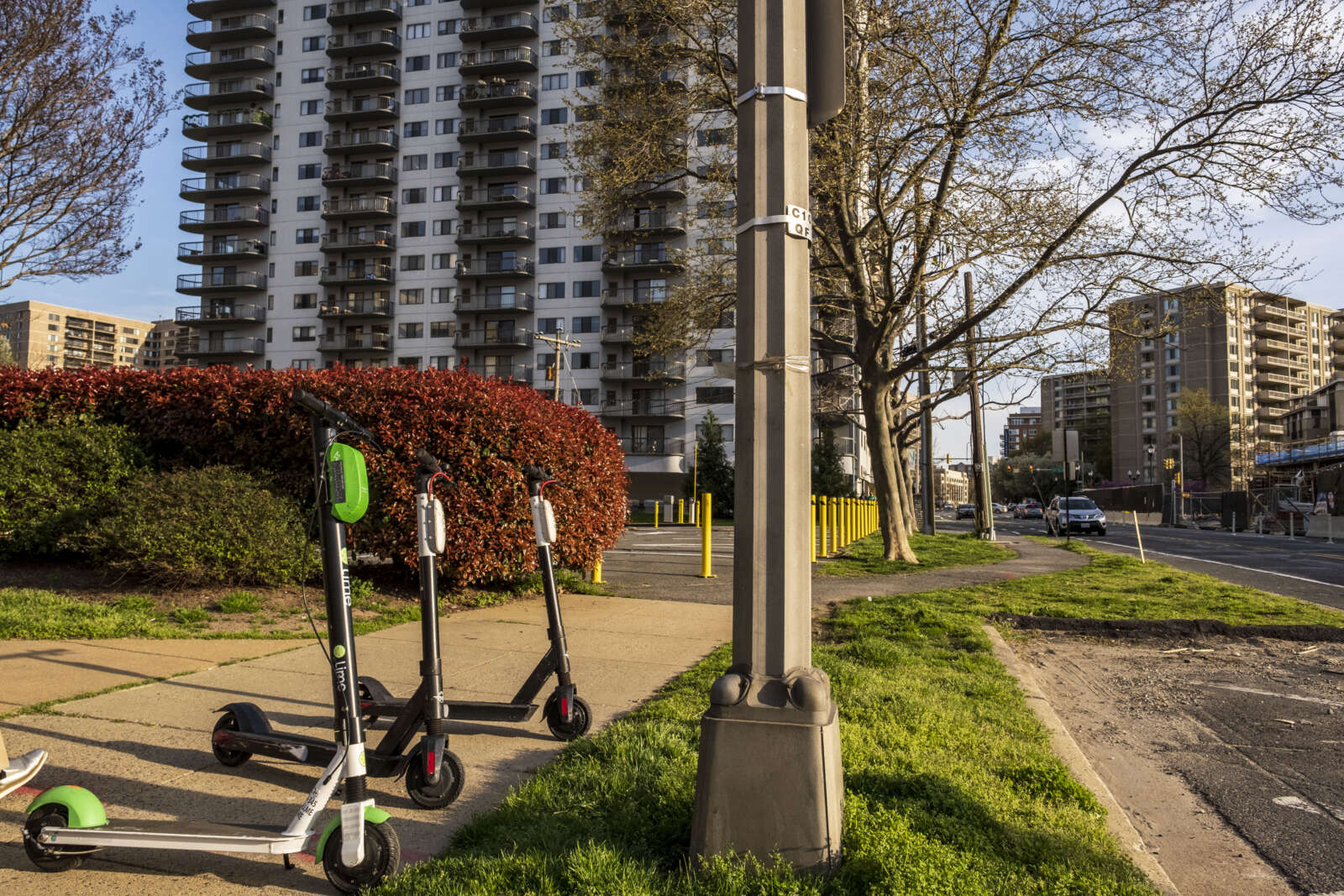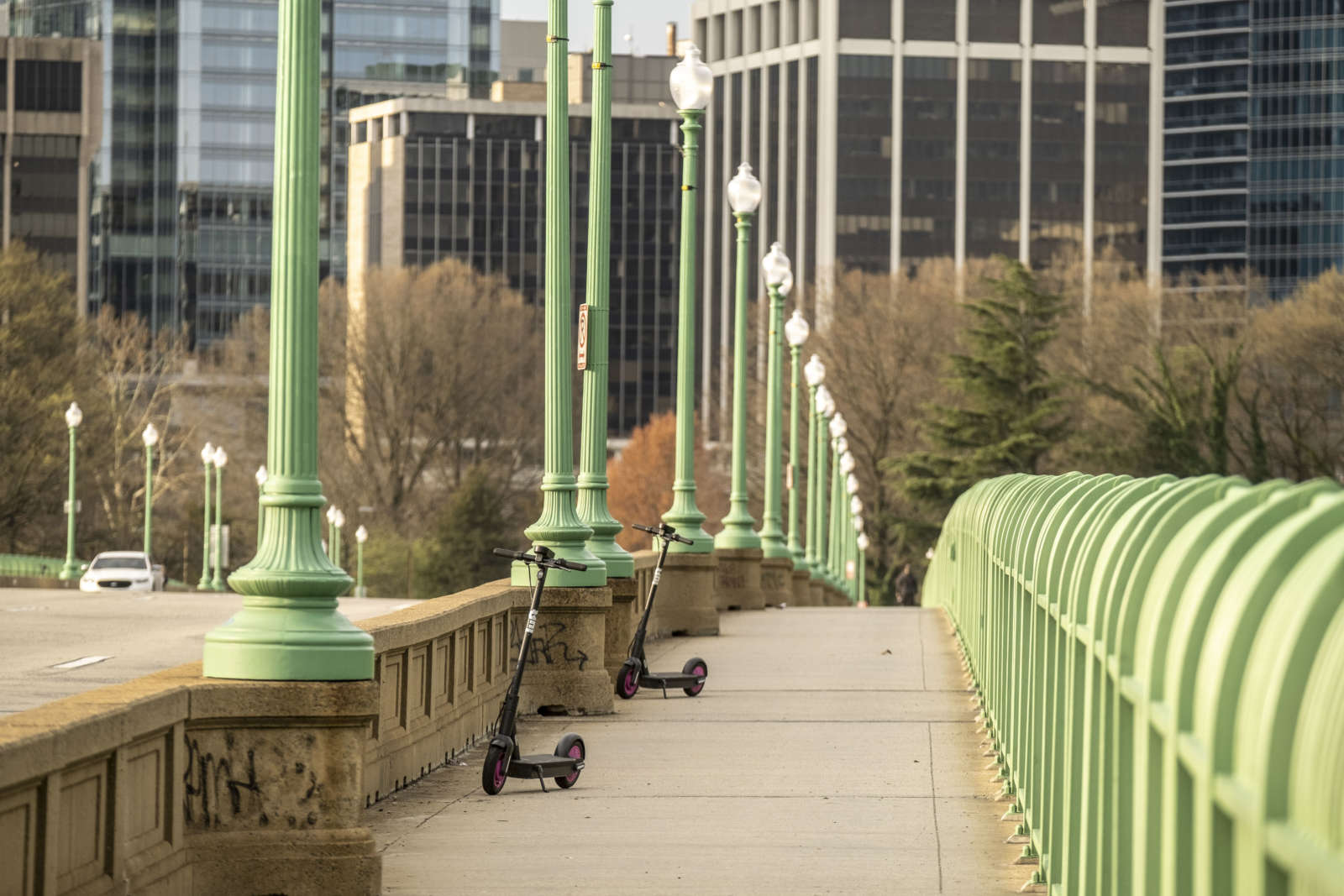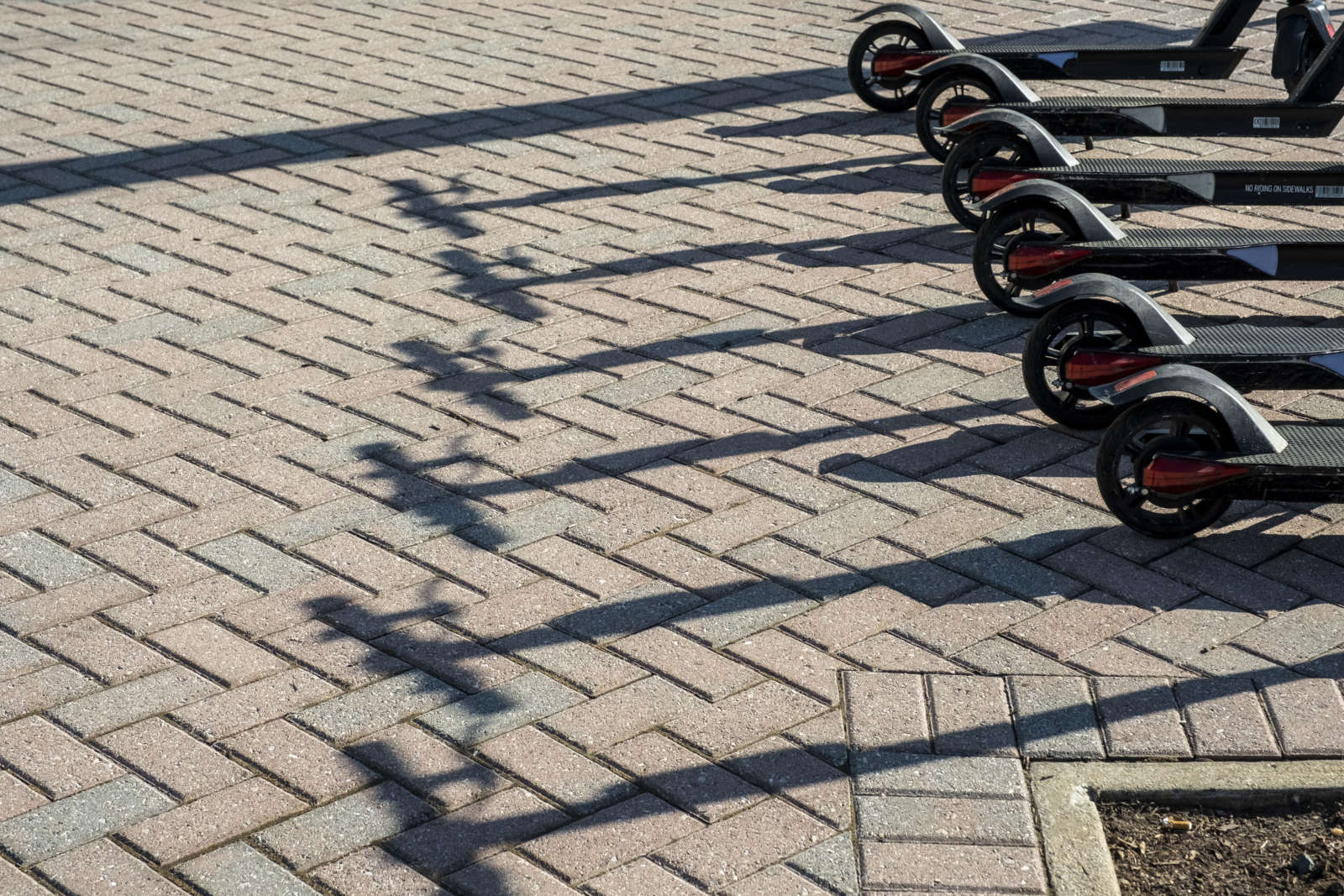(Updated at 3:15 p.m.) An emerging local group is looking to corral the “Wild West” of e-scooter parking in Arlington County.
The embryonic organization, which is calling itself “Purge,” will employ drivers to pile micro-mobility devices parked illegally on private property into vans and — essentially — hold them hostage until the operators of the offending devices pay a $50 invoice fee for their release.
“This is a huge opportunity and issue,” says Will, the founder, who requested to have his last name withheld until the official company launch. “We don’t want to interact with them at all: just pay it and it’ll go back on the street. They’re going to hate that but there’s nothing to say we can’t do that.”
If the business model sounds familiar, that’s because it is quite similar to how controversial Ballston-based trespass towing company Advanced Towing operates. Advanced, however, works within an established state and local regulatory framework, frequent accusations of skirting such laws by those on the undesirable end of their tows notwithstanding.
Arlington County has authorized a number of operators, including Bird, Spin and Lime, to operate some 350 e-bikes and 2,000 e-scooters within its borders. Some locals have long complained that scooter parking blocks pedestrian and, at times, vehicle traffic.
In response, the county has rolled out “corrals” to give people more legal options for parking their scooters, paid for by the cost for operators to do business in Arlington.
“Arlington has made decent strides with the corrals, but they’re a suggestion no one has forced them to operate better or develop incentivization for users to engage in better rider behavior,” Will says.
Billing operators could, he theorizes.
Something similar is happening in San Diego, where a duo impounds scooters in a lot using a flatbed truck. Scooter operators fought back with a lawsuit and later, cease-and-desist letters to private property owners using the impound service. The city has since filed its own lawsuit alleging the way these scooters are parked is a safety hazard.
“We’re trying to offer a balance here. The outcomes are they’re either forced to incentivize better behavior, or the [county] is forced to contract with us,” Will says. “We are working with local attorneys — there’s nothing in place to force them to operate legally. We think we have a low-tech solution that doesn’t require a huge investment.”
When it launches, Purge will only service private property. It doesn’t need impound authorization from private property owners, Will claims, while adding that several local private property managers, including some hotels and apartment buildings, have given the company the thumbs-up to haul away scooters.
Scooters abandoned in public right-of-way, however, could remain tripping hazards and nuisances — for now. Purge would skip mis-parked scooters on public property, at least initially.
For recourse, people can report mis-parked or abandoned devices via Arlington County’s Report a Problem tool, or via the helplines the companies operate. Operators are required to remove improperly parked devices within two hours of a report of mis-parking, according to the county’s website.
The other option is to just step around them, which can be dangerous for people who are blind or in a wheelchair or have another disability that impairs their mobility.
“Mobility only works if it works for everyone,” says Will, pointing out that these companies have raised hundreds of millions and — in some cases — billions of dollars, but in his view have not sufficiently invested in ways to incentivize proper parking.


